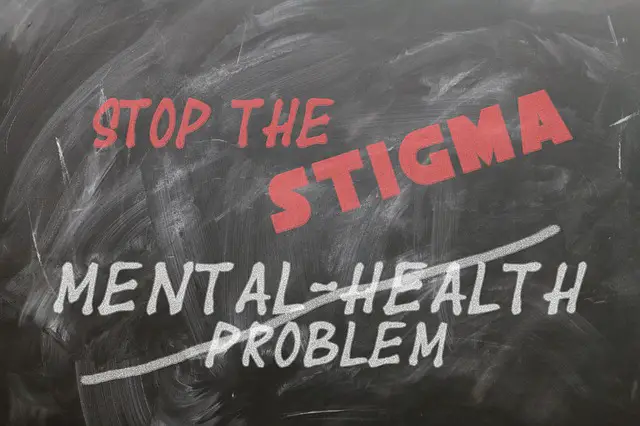Why is Caring for your Mental Health Important?

Caring for our mental health is as important as caring for our physical health. Similar to how we have preventative care and treatment for physical ailments, there is preventative care and treatment available for mental health. We all, including us black and brown folks, need to take care of our mental health.
DISCLOSURE: THIS POST CONTAINS REFERRAL LINKS, MEANING I GET A COMMISSION IF YOU DECIDE TO MAKE USE OF MY LINKS, AT NO COST TO YOU. SEE DISCLAIMER PAGE FOR MORE INFORMATION.
What is Mental Health?
According to the WHO, mental health is a state of well-being where one knows their abilities, can cope with everyday life stresses, work productively, and is able to contribute to society. The CDC reports that it includes our emotional, psychological, and social well-being.
Mental health is not just the lack of mental illness. In fact, the terms are not interchangeable. One could experience poor mental health without a diagnosis of mental illness. On the other hand, those diagnosed with mental illness can go long periods of time in good mental health.
What is the Difference Between Poor Mental Health & Mental Illness? And why is it important?

First, I would like to start with a similarity. With either, one should not feel ashamed or be shamed for acknowledging that it is occurring and that one needs help. Mental health is a big part of my family’s medical history. Ever since one of my family members committed suicide, it has become my personal mission to make mental health conversations more accepted around me.
So now to answer the question: what is the difference between poor mental health and mental illness? Mental illness is a disorder that is diagnosed with a standard set of criteria, mostly the DSM-5. So while anyone can experience poor mental health, only some will be diagnosed with mental illness.
Caring for Your Mental Health
While mental illness can be unavoidable (some are hereditary like physical illnesses can be), there are things we can all do to improve our mental health.
1. Exercise regularly
Not only does exercise improve your physical health, but it also can improve your mood supporting your mental health as well. Try to aim for at least 30 minutes of exercise 3-5x a week.
READ MORE: How to Get Motivated to Work Out When You Hate It!
READ MORE: Home Workout Equipment – how to make your home gym successful
2. Eat a nutritious diet
If you pay attention, you will find that certain foods make you feel sluggish while others make you feel energized. Some foods are filled with vitamins and micronutrients that support brain health.
Not sure what those foods are? A quick Google search I did recommended foods like salmon, dark green leafy vegetables, nuts, seeds, and legumes.
Try to figure out which of these foods fuels you and makes you feel good. It’ll be foods that are not loaded with processed fats and high in sugar for most. Not sure what foods make you feel good? Be intentional and pay attention when you eat as to how it makes you feel.
READ MORE: Organic Food – What You Need to Know to Decide if it’s Worth the Money
READ MORE: 5 Reasons You Need to Start Meal Prepping Today
3. Make time to relax
It’s very easy to go task after task day after day without thinking about giving yourself a break. I personally started to give myself 20-30 minutes after I got home from work to just relax when I realized I would leave my job to immediately start working at home. What you do to relax can be whatever will help you to wind down.
4. Connect with others
Some of our jobs can feel very isolating. This can be because we work in cubicles, we work with people we don’t have much in common with, or we’re working remotely. Whatever the reason may be, reach out to people you love and trust to share the good, bad, and ugly of your day. These should be people who encourage and uplift you.
5. Seek help
If you find yourself struggling, don’t be ashamed to ask for help. Sometimes, despite doing all of the above and more, we still grapple with poor mental health. Talking to a professional may be needed to process those feelings. Seeking help does not make you weak or mentally ill. It is simply acknowledging that you need a little more support and care enough about your mental health to maintain it.

Where Can You Find a Help?
EAP (Employee Assistance Program)
Your benefits package at your job may come with an employee assistance program. It is a free, confidential service providing mental and emotional support for staff experiencing personal and/or work-related problems. The EAP counselors can help you to address and navigate both simple and complex issues. Key words here: free & confidential help.
Insurance-Covered Therapy
If you have mental health benefits covered by your insurance, you can get help covered by your insurance. You would be subject to whatever co-pay your insurance sets out and your deductible. If any of those words are confusing, check out THIS article by clicking HERE.
Subscription Therapy
For people who don’t have the previous options available to them or the cost with their insurance would be too high, therapy has been made incredibly accessible online. There are apps like BetterHelp or Talkspace. These apps can cost $65 -100 per session.
These are not the only options available. If you search “therapy” in your app store, you’ll see many available options. Some even work with your insurance as well for even more savings.
Money Still a Barrier to Therapy?
There are low- to no-cost options for those who need the help but have very limited funds. Mental health clinics have professionals that can provide counseling and manage psychological conditions. NAMI & MentalHealth.gov are both great resources for mental health, including how to obtain low- or no-cost help.
So I hope by the end of this post, you’ve learned three things.
- Mental health & mental illness are not interchangeable.
- There are steps you can take to improve and maintain your mental health.
- Help is available if you need it and there is no shame in getting it.
Take care of yourself. You matter.
Sources
https://www.who.int/news-room/fact-sheets/detail/mental-health-strengthening-our-response
https://www.cdc.gov/mentalhealth/learn/index.htm

